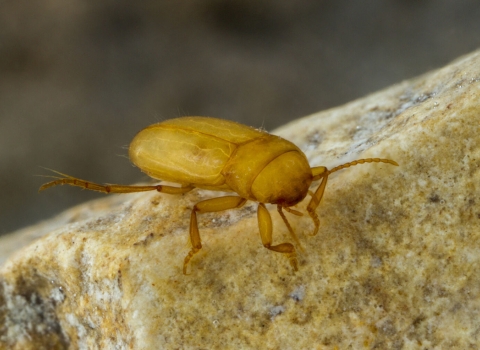DENVER - The U.S. Fish and Wildlife Service and Blackfeet Fish and Wildlife Department are seeking information on the illegal shooting of a female grizzly bear in Montana. The GPS-collared bear was last known to be alive on May 11, 2020. Law enforcement agents believe the bear was killed on the Blackfeet Indian Reservation on or around May 12 near Boarding School Road.
The grizzly bear, nicknamed “Yogi” by researchers, was a light golden-colored bear. The dead bear was found by Blackfeet Fish and Wildlife Department game wardens the week of May 14. The bear’s carcass was transported to the Montana Fish, Wildlife & Parks lab in Bozeman where an examination into the bear’s death revealed that the grizzly bear had been shot.
The Service and Blackfeet Fish and Wildlife Department are asking for your help. The Service is offering a monetary reward of up to $2,500 for information contributing significantly to and furthering the investigation into the death of this grizzly bear.
If you have any information about the shooting and killing of this grizzly bear, please call the Service’s Special Agent at 406-761-2286 or email lawenforcement@fws.gov. Members of the public who report information can remain anonymous.
The Service and Blackfeet Fish and Wildlife Department will apply applicable legal protections to hold accountable anyone who knowingly harasses, harms or feeds grizzly bears. Grizzly bears are currently protected under the federal Endangered Species Act.
Grizzly bears have emerged from their winter hibernation across their range this spring, which includes the State of Montana. For bear safety tips when living in or visiting grizzly bear country, visit: http://igbconline.org/bear-safety.
The mission of the U.S. Fish and Wildlife Service is working with others to conserve, protect, and enhance fish, wildlife, plants, and their habitats for the continuing benefit of the American people. For more information on our work and the people who make it happen in the West, visit our website, or connect with us through any of these social media channels: Facebook, Twitter, Flickr, YouTube, and Instagram.



